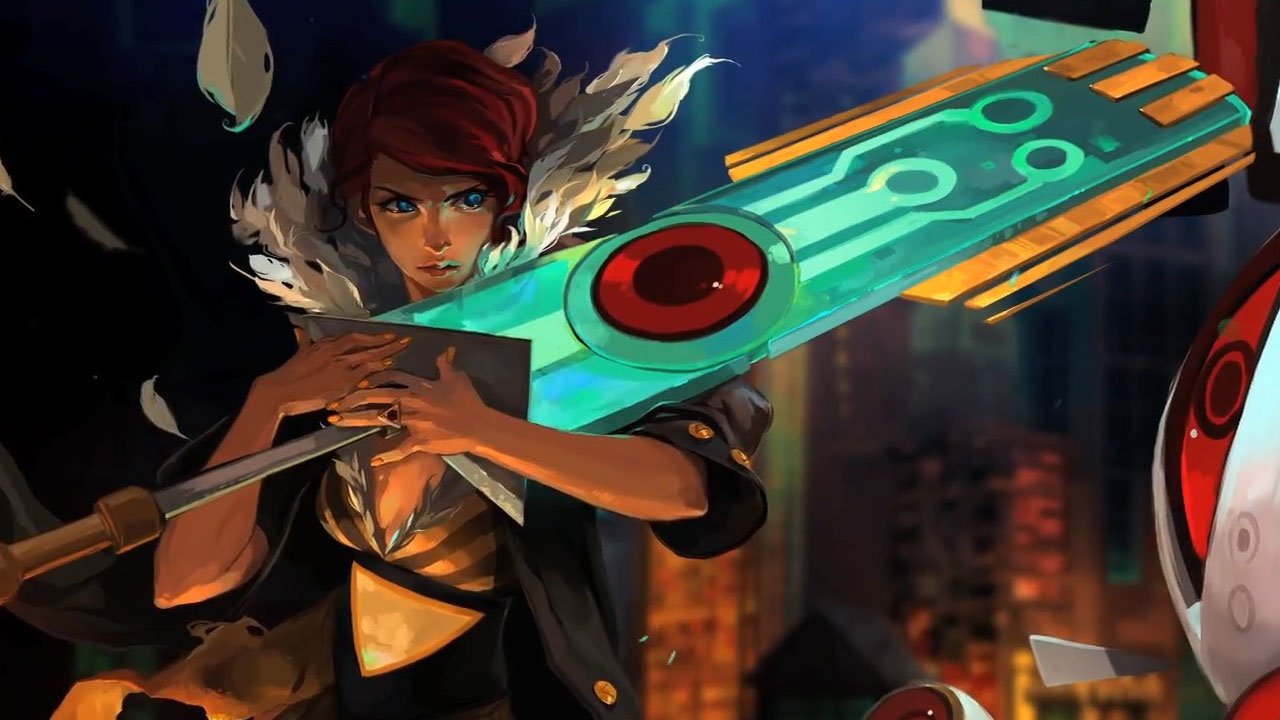After 2011’s Bastion, developer Supergiant Games could have rested on its laurels. Bastion was a great debut, establishing an imaginative and talented new presence. It would have been easy—maybe even advisable—for a small studio to capitalize on the critical and popular success of its first game by getting straight to work on a direct sequel.
Instead, Supergiant made the far riskier decision to start developing the recently released Transistor, a follow-up with a brand new setting and approach to gameplay. Those who have played Bastion will recognize stylistic similarities between Supergiant’s two titles—an in-game narrator, a combat system blending action and RPG mechanics—but, other than a handful of distinctive features, Transistor is completely original.
This isn’t how it usually goes.
“Transistor is exciting because its players are venturing into unfamiliar territory when they boot it up for the first time.”
Videogames, more than any other creative industry, are dominated by sequels. Every year sees the return of new entries to proven franchises, from Halo and Assassin’s Creed to Call of Duty and Super Mario Bros. Each fall season is dominated by sequels to popular game series, the industry’s “blockbuster” season filled with familiar characters and styles of gameplay. In many cases, these sequels make substantial improvements to the games that came before them, attempting to provide players with more of what they already liked while also improving what didn’t work before. Even though this kind of refinement can result in some extremely entertaining experiences, sequels can’t offer the sort of excitement that comes from exploring unfamiliar settings and learning entirely new mechanics in totally original titles. Players keep buying new entries to their favourite series because they know what to expect. But overindulging in the comforts of familiarity will cause a medium to stagnate—we need originality to keep things exciting.
Considering how expensive the development of a mainstream videogame is—and will continue to be now that the current generation has further increased audio/visual quality—the prevalence of sequels isn’t surprising. Publishers have to recoup the investment they make in a developer’s production costs, after all. It’s still disappointing, though, that new concepts are so rare. The traditional advice is to turn to independent studios for originality, but this isn’t always a solution either.
We’re pretty quick to exempt indies from taking part in uncreative business models, imagining that just because a studio is small it is somehow free from the financial realities that encourage endless sequels. This isn’t true. Indies may function without the kind of publisher oversight that is partly to blame for the problem, but most small teams also hope to make money from their work. If a studio has been lucky enough to create a recognizable game, they’re as prone as anyone else to the temptation of taking advantage of brand recognition when planning future titles.
This is why Supergiant’s decision to resist creating a Bastion sequel is so welcome. After gaining a fan base on the strength of their debut, Supergiant could have played their next project safe and created a continuation of Bastion’s story that made good use of a familiar “franchise” name (it doesn’t matter that the first game’s ending was so final; there is always a way to write around that sort of thing if you want to). Instead, it dreamed up a brand new world, populated by unknown characters. It gave us a game that is exciting because its players are venturing into unfamiliar territory when they boot it up for the first time. We don’t know anything about protagonist Red, the talking Transistor sword she fights with, or the sci-fi city of Cloudbank the plot takes place in.
The story and gameplay are a gradual process of discovery that keeps the player engaged because nothing is familiar enough to let her/his mind wander. It may only be a personal preference, but I like to play games in order to experience new things. I want to learn new ways to interact with gameplay systems—come to understand characters I’ve never met before and be told a story that isn’t weighed down by references to previous games.
It’s easy to bemoan the state of the medium when so many game releases are known quantities, and so many studio announcements are for familiar titles with a higher and higher number tacked to the end of their names. But, it’s also important to make note of the developers who buck these trends and strive to provide players with brand new experiences, even if doing so may be a risky financial prospect. Supergiant Games is one of the studios that people fed up with sequels should pay attention to. We should congratulate them for creating work as original and innovative as Transistor.
Check out our review of Transistor!




